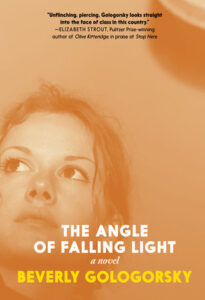
How Writing in Community Can Forge Friendships and Evoke Change
Beverly Gologorsky on Her Friendship with Fellow Writer Jane Lazarre and the Mentorship of a Writer’s Group
Phillip Roth once said that only a fool would sit in a room for thirty years doubting himself.
Writers are indeed fools grateful for the gift of creativity despite the constant doubt. We commune mostly with the blank page, which is what I was doing thirteen years ago when my friend Jane Lazarre phoned to ask me to join a writer’s group she was forming. Jane, an author of memoirs, novels and poetry had also contacted two other writers who were on board. Was I interested? At the time I was working on a novel in progress and no one yet had read any of it. Was I ready to share? I wasn’t sure.
Jane and I had been friends for eons. We met in 1978 when our children were entering kindergarten in the same elementary school. I’d started a full time job that required me to be at work before school began, and Jane offered to take both her son and my daughter to school, her generosity legion.
It was also around the time her acclaimed memoir The Mother Knot was published, a sensitive, gorgeously written book that challenged the myths of motherhood and childbirth, and engendered many study groups, arriving as it did during the second wave of feminism.
In the years that followed our friendship grew. We mentored each other as writers: read, edited and discussed each other’s work before it entered (or didn’t) the world. As women we nurtured each other with all that that entails.
Her published work was fearless, honest, controversial, work that left readers thinking. Her poetry could be elegiac or salt of the earth, her fictional characters alive.
A group would offer something more than she might achieve working alone.
Jane, a white woman married to a Black man, was the mother of two Black sons. If one of her young sons were late getting home she’d worry aloud he could’ve been stopped by the police, unfortunately too possible.
In her book The Whiteness of White (published by Duke), she discusses this fear with the insight and passion of mother-love and a deep understanding of racial history. Much of her work dealt with racism; she taught about it, wrote about it, led a creative writing program at the New School educating white people about racism.
Given her past successes, why did she want a writer’s group and why then, I wondered?
She was tired of listening only to herself is what she said. A group would offer something more than she might achieve working alone. She was confident that work in progress read by others could help us know if our words and the feelings we hope they portray are heard as intended. Is the piece evoking what the writer wants? Wasn’t she afraid negative commentary might interfere with work? She wasn’t, said slipping out of isolation for a few hours would be good, hearing other writer’s problems could be helpful.
Maybe it was luck, but our small cluster of women quickly cemented.
Jane was persuasive. Just try it, she said. I did.
We were a small group of published women writers whose everyday lives differed. We met one evening a month to discuss our work. Sounds tame. But placing unfinished or untested writing in front of the eyes of other experienced and respected writers actually takes courage. It also takes trust to believe, never mind accept, another writer’s critique of one’s own work. We’re all such guardians of our words. However, the sincere, generous and intelligent opinions offered about each piece read bestowed confidence in their writers. Maybe it was luck, but our small cluster of women quickly cemented.
We discussed one or two pieces an evening, giving each total attention. When it was my turn, I submitted work and listened closely to each comment. Jane asked if it was inertia, fragility or fear that guided my character’s decisions? An important question. I didn’t have an answer. It sent me back to figure one out, which changed the novel’s trajectory.
Wayward words may appear on a page, insist on themselves without rhyme or reason. Or the opposite, suddenly words are tumbling onto a page as if someone else is conducting. Is this process, creation, luck or what? Did it change with different genres? Did it matter? How individual was process? Very, it seemed, but we had different opinions, which was illuminating.
Several years ago I spent an evening with a German novelist visiting New York. He told me writer’s groups weren’t big in Germany. Most writers he knew wouldn’t discuss an unfinished project but might a finished one. He added that writers in his country didn’t need a group in order to be in touch with each other. They met often in bars, cafes, at readings, and elsewhere. Of course, he was a man. I’m not sure if the same was true for women writers.
He intuited that the lack of need for writer’s groups in his country might be due to Germany having fewer writers than we did in the states. He thought fewer writers also contributed to less competition among writers seeking presence. Book reviews in his country were not shrinking, at least at the time we spoke. He said writers there felt less need to compete for space. In short, he thought writer’s groups were a waste of time.
Thirteen years ago, I’d been reluctant to join Jane’s group, but I’m so glad I did.
That evening I phoned Jane to share what I’d learned from my discussion with the novelist. Unsurprisingly, she disagreed with him. Jane liked the quick feedback on her work that a group provided. She believed it mitigated a writer’s anxiety, unlike the long wait for an editorial response.
Our individual work, our discussions and our activities were not without political content. We were fiercely against the horrid racism and creeping fascism of a Trump world, erasing DEI, banning books, jeopardizing writing, composing, reading itself, all of it unacceptable. Denying readers the wisdom, experience and opinions of many voices was and is a crime. We shared a collective desire to effect change, and to do what we could through essays, books, and protest.
Thirteen years ago, I’d been reluctant to join Jane’s group, but I’m so glad I did. Apart from the myriad benefits to my work, I know our friendships blossomed, and I feel our shared heart. Thank you, Jane.
In June 2025, our collective heart shattered when Jane died. Our circle broke. She brought us her experience as a writer, her deep understanding of the writer’s sensitivity, and shared her fearsome devotion to aiming higher than our reach.
To go on or not without her remains undecided. Do we close the space she’s left and become a smaller circle or open it to others? It’s too early to know. Grieving needs time, and she is not replaceable.
I miss her and always will.
In memory and honor of Jane Lazarre, 11/16/44—6/19/25.
__________________________________

The Angle of Falling Light by Beverly Gologorsky is available from Seven Stories Press.
Beverly Gologorsky
BEVERLY GOLOGORSKY is the author of the acclaimed novel The Things We Do to Make It Home, which was named a New York Times Notable Book, a Los Angeles Times Best Fiction book, and a finalist for the Barnes and Noble Discover Great Writers Award, as well as the novels Stop Here ("unflinching, piercing," according to Elizabeth Strout), Every Body Has a Story, and Can You See The Wind?. Her work has appeared in many anthologies and magazines, including the New York Times, Newsweek, and the Nation. A former editor of two political journals, Viet-Report and Leviathan, Gologorsky has contributed to Feminists Who Changed America, Patriots: The Vietnam War Remembered From All Sides, and The Friend Who Got Away: Twenty Women's True-Life Tales of Friendships That Blew Up, Burned Out or Faded Away. She lives in New York and Maine.



















